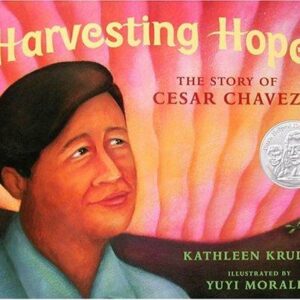The Pinochet Generation
$29.95
| Title | Range | Discount |
|---|---|---|
| Trade Discount | 5 + | 25% |
- Description
- Additional information
Description
The Pinochet Generation weaves together the dramatic history of Chile’s complex and fraught relationship to its armed services by thorough analysis of the experiences of General Augusto Pinochet’s generation of soldiers and the beliefs and traditions that motivated their actions. Chilean soldiers in the twentieth century appear in most historical accounts, if they appear at all, as decontextualized figures or simply as a single man: Augusto Pinochet. In his incisive study The Pinochet Generation: The Chilean Military in the Twentieth Century, John R. Bawden provides compelling new insights into the era and posits that Pinochet and his men were responsible for two major transformations in Chile’s constitution as well as the political and economic effects that followed.
Determined to refocus what he sees as a “decontextualized paucity” of historical information on Chile’s armed forces, Bawden offers a new perspective to explain why the military overthrew the government in 1973 as well as why and how Chile slowly transitioned back to a democracy at the end of the 1980s. Standing apart from other views, Bawden insists that the Chilean military’s indigenous traditions and customs did more than foreign influences to mold their beliefs and behavior leading up to the 1973 coup of Salvador Allende.
Drawing from defense publications, testimonial literature, and archival materials in both the United States and Chile, The Pinochet Generation characterizes the lens through which Chilean officers saw the world, their own actions, and their place in national history. This thorough analysis of the Chilean services’ history, education, values, and worldview shows how this military culture shaped Chilean thinking and behavior, shedding light on the distinctive qualities of Chile’s armed forces, the military’s decision to depose Allende, and the Pinochet dictatorship’s resilience, repressiveness, and durability.
Bawden’s account of Chile’s vast and complex military history of the twentieth century will appeal to political scientists, historians, faculty and graduate students interested in Latin America and its armed forces, students of US–Latin American diplomacy, and those interested in issues of human rights.
Determined to refocus what he sees as a “decontextualized paucity” of historical information on Chile’s armed forces, Bawden offers a new perspective to explain why the military overthrew the government in 1973 as well as why and how Chile slowly transitioned back to a democracy at the end of the 1980s. Standing apart from other views, Bawden insists that the Chilean military’s indigenous traditions and customs did more than foreign influences to mold their beliefs and behavior leading up to the 1973 coup of Salvador Allende.
Drawing from defense publications, testimonial literature, and archival materials in both the United States and Chile, The Pinochet Generation characterizes the lens through which Chilean officers saw the world, their own actions, and their place in national history. This thorough analysis of the Chilean services’ history, education, values, and worldview shows how this military culture shaped Chilean thinking and behavior, shedding light on the distinctive qualities of Chile’s armed forces, the military’s decision to depose Allende, and the Pinochet dictatorship’s resilience, repressiveness, and durability.
Bawden’s account of Chile’s vast and complex military history of the twentieth century will appeal to political scientists, historians, faculty and graduate students interested in Latin America and its armed forces, students of US–Latin American diplomacy, and those interested in issues of human rights.
The Pinochet Generation weaves together the dramatic history of Chile’s complex and fraught relationship to its armed services by thorough analysis of the experiences of General Augusto Pinochet’s generation of soldiers and the beliefs and traditions that motivated their actions.
John R. Bawden is an associate professor of history at the University of Montevallo and teaches twentieth century Latin American history. His articles on the Chilean military have been published in the Journal of Latin American Studies and The Latin Americanist.
List of IllustrationsAcknowledgmentsIntroduction1. Evolution of a Proud Tradition: Chile’s Armed Forces to 19312. First Years in Uniform, 1931–19453. The Gathering Storm: Postwar Politics and Institutional Frustration, 1945–19704. Intellectual and Professional Formation, 1945–19705. Salvador Allende and the Armed Forces, 1970–19736. Soldiers before Pinochetismo, 1973–19767. Defying the World and Restructuring the State, 1977–19818. Circling the Wagons: The Survival of the Pinochet Regime, 1982–19869. Mission Accomplished: The Transition to Protected Democracy, 1987–1990EpilogueNotesBibliographyIndex
Additional information
| Dimensions | 1 × 6 × 9 in |
|---|








